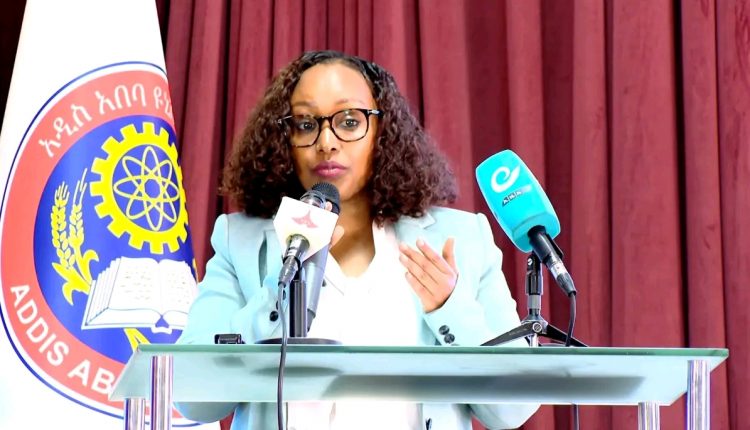Ethiopia Showcases Homegrown Climate Solutions Ahead of Africa Climate Summit
Addis Ababa, August 25, 2025 (FMC) – Ethiopia has long prioritized climate action, positioning itself as a pioneer in global efforts to combat climate change, Minister of Planning and Development Fitsum Assefa said during the launch of the fifth Nairobi Summer School on Climate Justice (NSSCJ).
The event, organized by the Pan African Climate Justice Alliance (PACJA), was held at Addis Ababa University today as a prelude to the Second Africa Climate Summit (ACS2), which Ethiopia will host from September 8–10, 2025.
In her address, Minister Fitsum underscored Ethiopia’s longstanding commitment to climate action, noting that its strategic framework predated the 2015 Paris Agreement. She highlighted the country’s achievements as a global leader in climate ambition, emphasizing that Ethiopia’s approach is deeply rooted in national priorities.
“Ethiopia introduced its Climate-Resilient Green Economy (CRGE) Strategy back in 2011, becoming one of the first countries to design a national climate plan that integrates economic growth with emission reduction and resilience against climate shocks,” she said.
The minister noted that Ethiopia is now finalizing its third Nationally Determined Contribution (NDC) and has developed a long-term low-emission development strategy aimed at achieving a net-zero economy by 2050.
Minister Fitsum cited several tangible examples of Ethiopia’s homegrown climate actions. The Green Legacy Initiative, launched by Prime Minister Abiy Ahmed in 2019, has planted over 48 billion trees to date, with a target of 50 billion by 2026. “This initiative has restored degraded lands, reduced soil erosion, enhanced food security, and created green jobs,” she said.
Ethiopia’s energy sector, she added, remains a cornerstone of the nation’s climate strategy. “More than 96 percent of our electricity is generated from renewable sources,” Minister Fitsum stated, highlighting the country’s commitment to sustainable energy.
She also highlighted urban sustainability projects, including the promotion of e-mobility and the riverside development project, describing them as “foundations for a vision where development and environmental sustainability advance hand in hand.”
Addressing Africa’s role in the global climate agenda, Minister Fitsum emphasized that while the continent has contributed relatively little to climate change, it is now a source of effective solutions. “Africa has solutions—solutions that work, homegrown solutions,” she said.
She called on the international community to support these initiatives, adding, “If the world is willing to finance these solutions, we are ready to implement them.”

